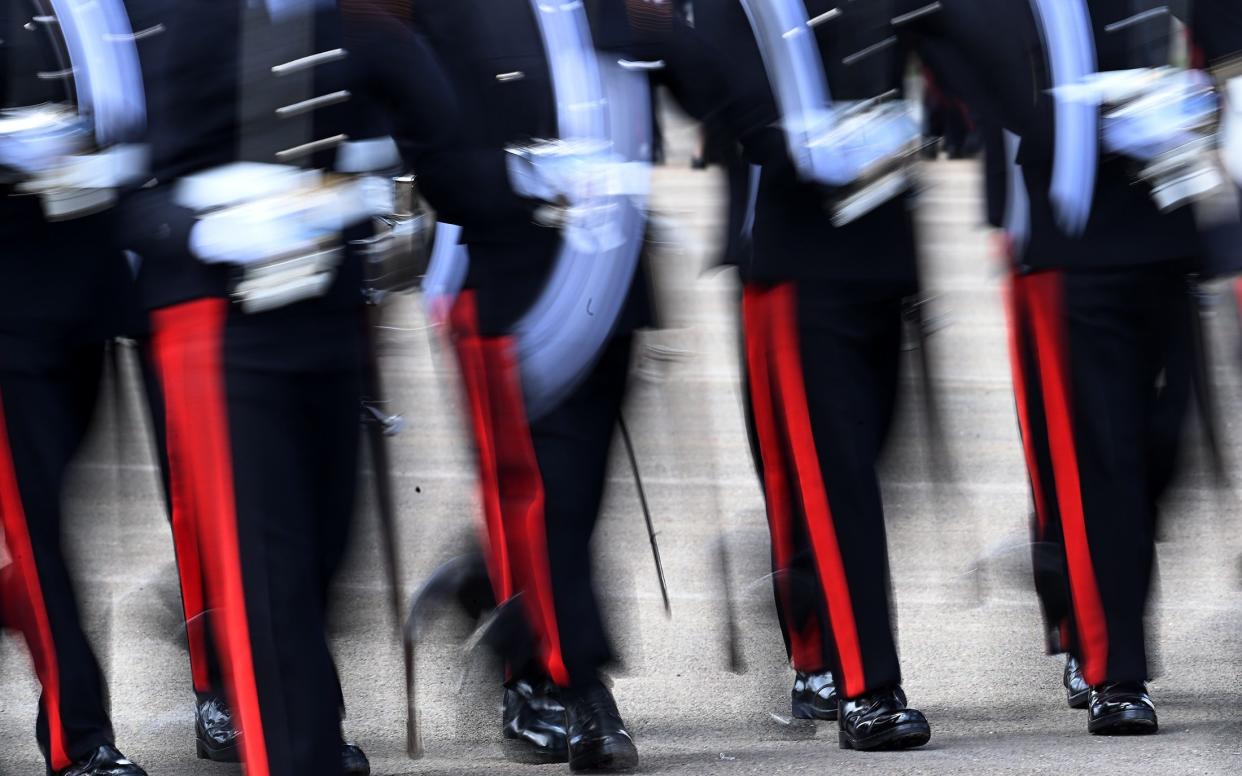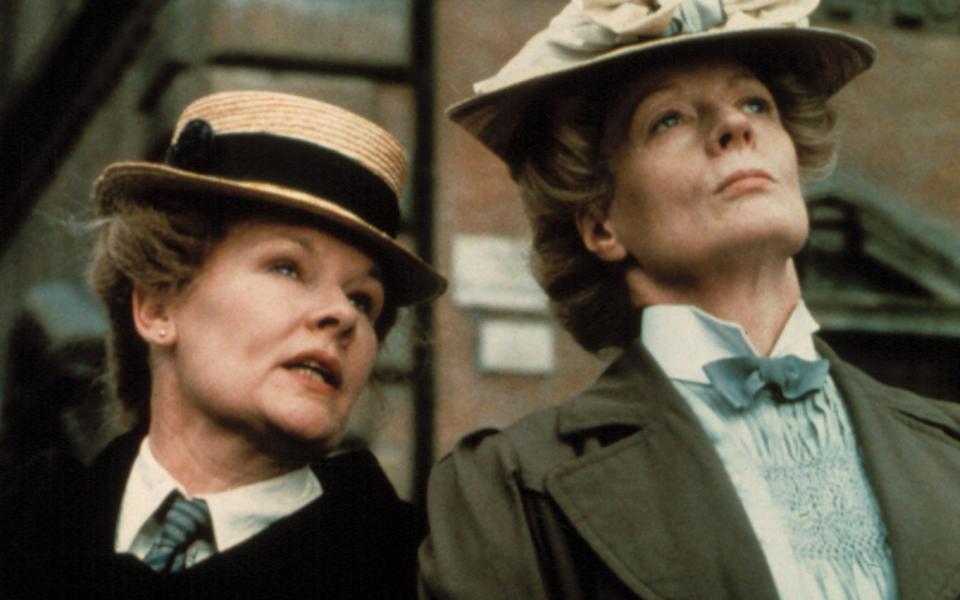Letters: The Ministry of Defence's plans for military accommodation will accelerate the Army exodus

SIR – Allison Pearson’s excellent article (report, February 24) on the exodus of Army officers and the service housing crisis speaks up for a group who have little public voice, yet are the backbone of our defence. The planned scheme she outlines would extend accommodation to unmarried couples and children from previous relationships, who are currently excluded. But the plain fact is that there isn’t enough accommodation, especially for Army personnel.
Ministers’ principal advisers on this are both admirals, but the Navy faces a completely different set of people problems, based on long periods at sea.
As the majority of its ships and officers’ staff jobs are in southern England, most naval families have bought houses and settled there. So, based on the Navy’s approach, the Ministry of Defence keeps plugging its scheme to buy instead of using service accommodation.
But settling down is not open to most Army and RAF officers until they pass regimental or squadron service age, as garrisons and stations are spread across the country. Instead of an officer’s quarters, an Army or RAF officer without children will, at best, get something much smaller and, in the Army’s case, often be faced with finding a civilian rental property up to 50 miles away.
This is being implemented shortly after the decision to centralise all housing allocation to a call centre in Liverpool, eliminating all possibility of local intervention by commanding officers in the most critical cases.
As a former defence minister and the proud father of an Army officer, I urge the Government to think again.
Sir Julian Brazier
Canterbury, Kent
SIR – I was a serving Army officer and fought in the Falklands in 1982, and in Northern Ireland, Kosovo, Iraq and Afghanistan. I was away for nearly half of my married life. My wife brought up our children and moved house 15 times in 18 years to be with me. She did this because she loved me and wanted the family to be as stable as possible. I simply could not, and would not, have been able to serve my country as I did if my family had been unhappy and distressed. I spent years in conflict zones thinking about them and longing to see them again.
If anything had been done to cause this foundation to be eroded, I would have left the Army immediately. I love my country and longed to serve my soldiers as best I could, but my family always came first. We all endured this pressure because we felt we were valued and, occasionally, I was rewarded. But I would have given up the salutes, the pay and the thrill of serving in a heartbeat if I had been confronted by a dispirited family, whose anguish was exacerbated by the actions taken by the system I served. And make no mistake, my wife also felt that she was doing her duty and that she, too, was serving.
Please, Ministry of Defence, don’t make the job harder to do. Understand that a married quarter is more than bricks and mortar; it is a home. It is all we had to live in and be together. It was a tangible sign for us that the system understood that, for our family’s service, there was something it could do for us. Tinker with this contract at your peril.
Lest anyone accuse me of being insensitive to the importance of improving the lives of soldiers, let me add that only someone who has actually served understands the effort we put into those we were privileged to lead – but what the MoD is proposing is displacement activity.
Instead of raising the lives of soldiers, it has decided to lower the lives of officers. This is immoral and I would not have put up with it. The only thing that will come from this is that the good will go, because they can, and the will to fight will, again, be undermined.
James Stuart
Salisbury, Wiltshire
Rising extremism
SIR – Suella Braverman has bravely identified that this country – my country – is becoming controlled by extremists (“Islamists are bullying Britain into submission”, Comment, February 23), some of whom belong to banned organisations or are illegal immigrants.
They are against everything our country stands for and we are walking blindly into a catastrophe.
Susan Walters
Frampton Cotterell, Gloucestershire
SIR – Living in the borough of Tower Hamlets, I can only agree with Suella Braverman.
I recently contacted the council asking why there is a Palestinian flag flying in the grounds of a nearby kindergarten. I have yet to receive a reply.
Catherine Heckman
London E2
SIR – If saying the Mayor of London has been taken over by Islamists is Islamophobic (report, February 25) – whether true or not – it then follows that Islam must not be criticised in any shape or form; unlike Christianity which, it seems, can be persecuted at will.
Robin Warde
St Ann’s Chapel, Cornwall
SIR – The knee-jerk reaction from Tory MPs and others to Lee Anderson stating what most of the country thinks will be the death knell of the Conservative Party. It is blind to what has been occurring on our streets, and seems unable or unwilling to address the issue.
Dr Martin Henry
Good Easter, Essex
SIR – By suspending Lee Anderson, the Conservative Party continues in its role as recruiting sergeant for Reform UK. In his Red Wall constituency, Mr Anderson represents the very people that the Conservatives hope will continue to support them at the next election. To withdraw the whip is bad politics. It shows panic and an attempt to silence what should be a genuine discussion about the disorder in London and elsewhere.
David Saunders
Sidmouth, Devon
Booking fees
SIR – Jackie Andrews (Letters, February 24) mentions the “exorbitant” fee that was included when booking theatre tickets.
Why is this extra and not simply included in the ticket price?
Peter Chennell
Wimborne, Dorset
Support for Ukraine
SIR – Ukraine is not only fighting for its own survival; it is also fighting a proxy war on behalf of Nato. However, due to a lack of equipment and ammunition, it is starting to lose ground.
Not only should Britain and other Nato members increase the production capacity of their defence industries (report, February 23), they should also give Ukraine far more of their current military equipment and ammunition. It is far better to help the Ukrainians to degrade the Russian war machine now than to risk a direct confrontation with Nato at a later date, when the danger of escalation and a nuclear exchange would be far higher.
Moreover, Britain should give Ukraine as many Challenger 2 tanks as it wants. They were designed to destroy Russian tanks and that is exactly what they should be doing now, not waiting to undergo a modernisation programme.
Rear Admiral Philip Mathias (retd)
Director of nuclear policy, 2005-2008
Southsea, Hampshire
SIR – I have always been proud to be a citizen of a country that is renowned for defending the underdog against tyrants, frequently at great cost to itself. There are, however, signs that our leadership is beginning to get cold feet regarding continued support for Ukraine and Israel, both of which have suffered unprovoked aggression.
It is time that our elected representatives made our support for both nations clear, not with meaningless rhetoric, but by sending them the weapons that will ensure their victory over the thugs and murderers that torment them.
Terry Justice
Kingston upon Hull, East Yorkshire
SIR – It must be assumed that the United States will withdraw from Europe to concentrate on China, Korea and Iran. France and Germany’s halfhearted approach, and the UK’s inability to continue its support of Ukraine, will surely force the countries bordering Russia to form a new alliance to join the fight against Vladimir Putin. Nato is now defunct – a new deterrent is urgently required.
Keith Murdoch
Stansted, Essex
Finger lickin’
SIR – As a child, I too loved going round the Shippam’s factory (Letters, February 24).
Our guide had the top of his index finger missing, which he assured us had been lost in the mincing machine.
Pauline Grove
Headley, Hampshire
How Verdi brings passion to Forster’s Florence

SIR – I would like to add two Italian opera favourites to Ivan Hewett’s list of the 10 best classical-music moments in the movies (Arts, February 23).
First, Verdi’s plaintive melody from The Force of Destiny, which runs as a poignant motif through the film Jean de Florette and its sequel Manon des Sources. Secondly, from the film A Room with a View, Puccini’s lovely aria O mio babbino caro (“Oh my dear Papa”), which gives just the right warm Florentine glow to E M Forster’s tale of the Edwardian English abroad.
Interestingly, these films date from the mid-1980s, when it seemed that we were all into opera.
Ian France
Penrith, Cumbria
SIR – Ivan Hewett listed 10 iconic pieces of music, but the one that brings tears to my eyes is Adagio for Strings by Samuel Barber, which is played at the end of the film Platoon. There is so much feeling when Willem Dafoe falls to his knees as the helicopter leaves.
Veronica Leon
Harrow, Middlesex
SIR – I’m rather sad that Ivan Hewett left my own favourite – Gustav Mahler’s Adagietto from his fifth symphony in C-sharp minor – off his top 10 examples of the best classical-music moments at the movies. I’d never heard of Mahler, being a bit of a philistine, until I saw the 1971 film Death in Venice, when I was totally smitten. This was followed in 1974 by the film Mahler, and I’ve stayed faithful to this wonderful composer ever since.
Annabel Farrell
Ballymoney, Co Antrim
Shamima Begum’s use of British legal aid
SIR – Shamima Begum (report, February 23) is a stateless person, who has already had her UK citizenship removed, so how is she able to access the UK’s legal-aid system?
Sara Simmons
London SE9
SIR – Shamima Begum’s appeal for the return of her British citizenship has failed. It is now expected that she will secure further legal aid and appeal to the Supreme Court. The cost to the legal-aid fund is already estimated to be about £250,000, and if a further appeal proceeds, it could reach £7 million. This astronomical expense is met by the British taxpayer, quite apart from the Government’s legal expenses.
I do not blame Ms Begum for taking full advantage of the legal-aid fund. Neither do I blame her legal advisers for seeking full payment for their work on her behalf. The fault lies with the system, and those administering it, and it will encourage others to seek similar levels of legal assistance.
As a retired lawyer, I feel that a limit could and should have been applied. The public funds being dissipated on this case could surely have been better spent elsewhere.
John Twitchen
Leigh-on-Sea, Essex
Letters to the Editor
We accept letters by email and post. Please include name, address, work and home telephone numbers.
ADDRESS: 111 Buckingham Palace Road, London, SW1W 0DT
EMAIL: dtletters@telegraph.co.uk
FOLLOW: Telegraph Letters on Twitter @LettersDesk
NEWSLETTER: sign up to receive Letters to the Editor here

